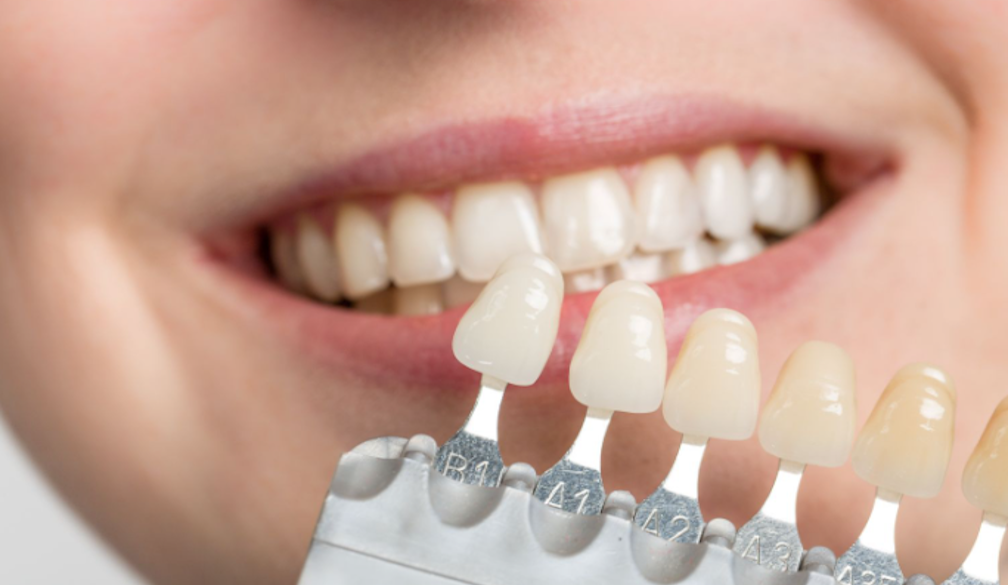How Cosmetic Dentistry Can Fix Stained Teeth
- Written by Times Media

A bright, white smile is typically associated with health, vitality, and confidence. However, many individuals find that their teeth become stained or discolored over time, despite diligent oral hygiene. This discoloration can stem from a variety of sources, including dietary habits, aging, medications, or trauma. While over-the-counter whitening products offer a temporary solution for some, they’re frequently ineffective against deeper, more intrinsic stains. Fortunately, modern cosmetic dentistry can provide a range of advanced, long-lasting treatments specifically designed to address and correct stained teeth, transforming smiles with precision and artistry.
Here’s how cosmetic dentistry can fix stained teeth:
Understanding the Nature of Tooth Stains
To effectively treat discoloration, dental professionals first categorize stains by their origin. Extrinsic stains are discolorations on surface levels caused by some factors, such as coffee, tea, red wine, tobacco, and certain pigmented foods. These stains typically affect the tooth's enamel, the hard, outer layer.
Intrinsic stains, however, originate from within the tooth structure, or dentin. These can be more challenging to address. Causes include excessive fluoride exposure during childhood, the use of tetracycline antibiotics at a young age, trauma that causes internal bleeding within the tooth, or simply the natural aging process, which thins enamel and reveals the naturally yellower dentin underneath. Identifying the type and cause of the stain can be a critical first step in any cosmetic dental plan, ensuring the selected treatment targets the problem effectively.
Professional Teeth Whitening: The First Line of Defense
For mild to moderate extrinsic staining, in-office professional teeth whitening is often the recommended starting point. This treatment can utilize powerful, dental-grade bleaching agents, typically hydrogen peroxide or carbamide peroxide, applied under controlled conditions. To protect the gums and soft tissues, dental professionals employ specialized barriers or gels.
The concentration of the bleaching gel and the application method are far superior to store-bought kits. Some systems use advanced technologies like laser or LED light to accelerate the chemical reaction, breaking apart stain molecules and oxidizing discoloration. A single appointment can yield brighter teeth, often lightening them by several shades. For convenience, dentists may also provide custom-fitted take-home trays with professional-grade gel for patients to achieve similar results over a couple of weeks. This method is highly effective for reversing years of surface stains from food and drink.
The Transformative Power of Porcelain Veneers

For patients seeking a comprehensive solution to extensive, severe, or treatment-resistant staining, porcelain veneers represent the gold standard in cosmetic smile makeovers. These are ultra-thin, custom-crafted shells of medical-grade ceramic that are permanently bonded to the front surfaces of the teeth.
The appeal of veneers lies in their ability to simultaneously correct multiple aesthetic concerns—stains, gaps, minor misalignments, and worn or irregular shapes—with a remarkably natural result. The porcelain material is highly stain-resistant and mimics the light-reflective properties of natural dental enamel. If you're considering this transformative route, exploring high-quality veneers for your teeth can provide insights into the meticulous process and exceptional outcomes possible with expert cosmetic care. The procedure typically requires two or three appointments and involves a minor preparation of the tooth surface to ensure a perfect, flush fit. The result is also a radiant, uniform, and durable smile that can last for decades with proper care.
Dental Bonding: A Direct and Conservative Approach
For stains that are slightly more stubborn or localized to a few teeth, composite resin bonding presents a minimally invasive option. In this procedure, a tooth-colored composite resin material is applied directly to the tooth's surface. The dentist skillfully sculpts and molds the pliable resin to cover the stain, then hardens it with a specialized curing light. The final step involves trimming, shaping, and polishing the resin to blend seamlessly with the natural tooth.
Bonding is an excellent solution for masking intrinsic stains on a single tooth, such as one darkened by trauma, or for covering small imperfections like chips alongside discoloration. The treatment is usually completed in one visit, requires little to no removal of natural tooth enamel, and is among the most cost-effective cosmetic solutions.
Dental Crowns: Restoring Severely Compromised Teeth
When a tooth isn’t only deeply stained but also significantly damaged, decayed, or structurally weak, a dental crown becomes the restorative treatment of choice. A crown is a custom-made "cap" that encases the entire visible portion of the tooth above the gum line.
Fabricated from materials like high-strength porcelain, zirconia, or porcelain-fused-to-metal, crowns are designed for both durability and aesthetics. For front teeth, all-ceramic or all-porcelain crowns can provide the most natural, translucent appearance, effectively masking even the darkest discolorations. The process involves reshaping the tooth to create space for the crown, taking an impression for precise fabrication in a dental lab, and cementing the permanent restoration into place. A crown can conceal severe staining, restore full function, and protect the underlying tooth structure.
Making an Informed Decision for a Brighter Smile
Choosing the most appropriate treatment for stained teeth requires a professional consultation. A qualified cosmetic dentist will conduct a thorough examination, discuss aesthetic goals, and consider factors such as the type of staining, overall oral health, budget, and long-term expectations. Each method offers distinct advantages, from the non-invasiveness of professional whitening to the comprehensive correction offered by porcelain veneers.
Final Thoughts
Ultimately, advancements in cosmetic dentistry have made it possible for you to achieve a whiter, more confident smile, regardless of the cause or severity of tooth discoloration. By leveraging these sophisticated techniques, dental professionals can effectively erase the evidence of stains and create a luminous, healthy-looking appearance that rejuvenates an individual's entire demeanor. Investing in such treatments is about restoring a sense of self-assurance that radiates every smile.

















